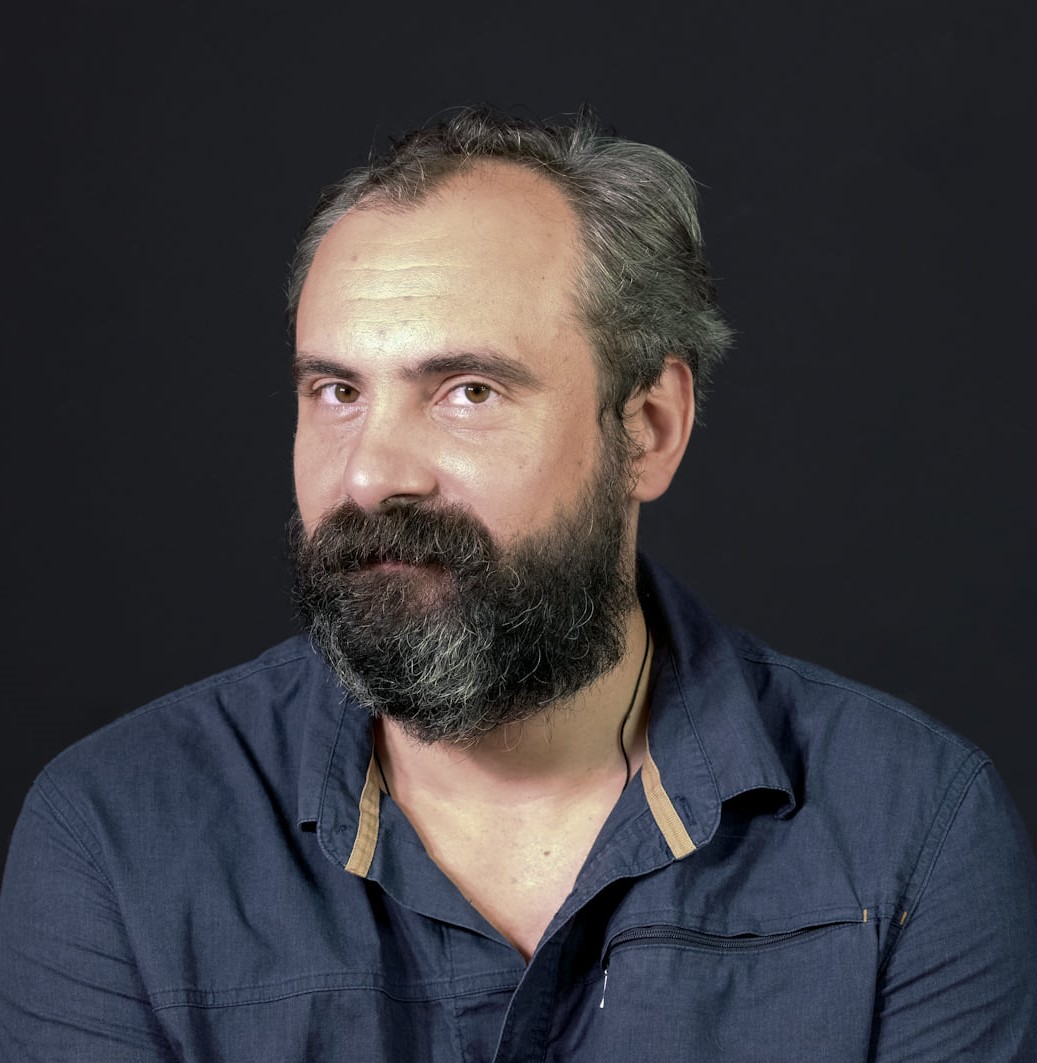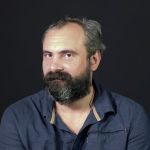INTERVIEWED BY PATRICK WILLIAMSON
Patrick Williamson: What themes or ideas do you explore in your poetry? How do your personal experiences or beliefs influence your writing?
Cosmin Perta: The themes vary depending on my interest or mood at the moment. Usually, I write poetry about something that obsesses me at a certain time, and I do it after an idea, a rhythm, or a sensation settles in my mind. Therefore, the themes vary, from the classics, love, death, to texts with social, existential, political, and ecological themes, but everything is obviously related to or starts from an intimate, personal experience of fragility exposed to the constricting mechanisms of history.
PW: How do you approach the craft of poetry? Do you follow a specific process or structure when writing a poem?
CP: Usually, I wait for a lot of tension to build up inside. I start with an idea, an image, that preoccupies me and that I analyze in my mind in tens, hundreds of scenarios, to the point of obsession. Then I conceive the first verses in my mind, repeating them in different versions until I find a rhythm and musicality. That’s when I start writing; if I have the rhythm, idea, and sensation well-defined, the poem flows effortlessly.
PW: Can you discuss the significance of language and word choice in your work? How do you choose which words to use in a poem?
CP: As I mentioned, in the first draft I don’t control the language; I let it flow freely. However, during editing, I change words if some are repeated, look for synonyms if there are alternatives that better convey what I want to say, and try to simplify, fluidize, and clarify the text. Obscurity has its place in poetry, but I believe in clear and precise poetry, without much ambiguity, acting like a scalpel.
PW: Can you discuss any challenges or obstacles you’ve faced as a poetry author? How have you overcome them?
CP: The main obstacle is that, unlike prose or essay writing, I can’t write poetry just anytime, on command. I can’t force it. My poetry has its own flow, requiring periods of accumulation followed by intense and explosive periods of manifestation, and then silence. Stylistically, rhetorically, you can write a poetic text anytime; the technique can be reproduced, but you will never get the poems that are relevant to you, the ones you want. For that, you need patience and an understanding that poetry is not a daily profession. I don’t believe in the romantic concepts of inspiration and muse, but I believe that poetry is a living organism that needs rest and recovery after a period of effort, just like the brain needs relaxation after experiencing a series of intense sensations.
PW: How has your writing evolved over time? Can you discuss specific poems or collections that mark significant points in your development as a poet?
CP: There have been several stages in my poetry. I started in a zone influenced by avant-gardism and neo-expressionism, then moved towards a biographical and personist expression, and now I’m more in a phase of social poetry with ethical and theoretical implications. Another thing that happened over time was the shift from a baroque-expressionist structure and metaphorical language to an emphasis on simplicity and clarity, with direct language stripped of any ornamentation.
PW: Are there any poets or works of poetry that have mainly influenced your writing style or themes? How have they inspired you?
CP: Of course, there have been poets who have influenced me. And there are many; a list would take up the entire interview space. I’ve learned a lot by reading a lot of poetry, and my references have changed over the years, discovering new languages, new expressions, new perspectives. Formally, all my poetic technique is learned from others, but thematically, I never adopted someone else’s themes. I always wrote about what directly pained me, always starting from an assumed experience. In recent years, reading poetry doesn’t inspire me to write poetry; music does. I use music as a medium for poetic expression. Music can enhance certain states, such as longing, anger, melancholy, joy, bringing them to a boiling point. Music can also induce a rhythm or atmosphere that helps with certain texts without contaminating your experience with others’ experiences that you can’t control.
PW: What is your view about current trends in poetry from Romania? And what does the future hold?
CP: I believe that currently, the poetic scene in Romania is one of the most diverse and competitive in Eastern Europe. There are no longer dominant poetic directions; dozens of types of expression coexist, all evolving, adapting, searching, all bringing freshness. After postmodernism and its classical directions, new generations are playing with many elements: performance poetry with musical, choreographic, and visual elements, ecological poetry, feminist poetry, political poetry, intimate poetry, biographical poetry, everyday poetry, experimental-theoretical poetry, conceptual poetry, minimalist poetry, or already classical genres like narrative poetry, philosophical poetry, religious poetry and so on, all represented by different authors, with new approaches always emerging. Therefore, I am convinced that the future can only be bright.
Also, Read The Only Way Out, By U. K. Kumaran, Translated from The Malayalam by K. M. Ajir Kutty and published in The Antonym:
Follow The Antonym’s Facebook page and Instagram account for more content and interesting updates.




























0 Comments